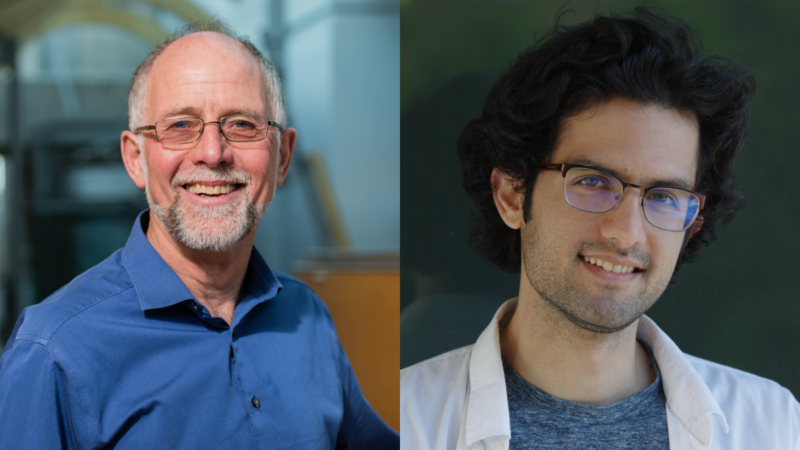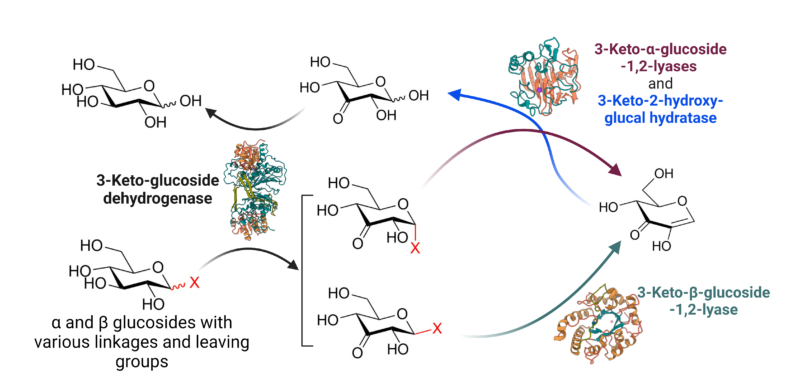Newsroom
Withers lab discovers a new bacterial pathway for carbohydrate breakdown

Dr. Stephen Withers (left), and graduate student Seyed Amirhossein Nasseri (right).
A new publication in Nature from the lab of Dr. Stephen Withers (Department of Chemistry, Associate Member of the Michael Smith Laboratories), led by graduate researcher Seyed Amir Nasseri, is a reminder that there are always new discoveries to be made in science. In this latest study, Nasseri discovered a new and distinct pathway through which gut bacteria break down the linkages found in carbohydrates.
With the exception of some carbohydrates such as starch, sucrose and lactose, human digestive enzymes cannot break down most of the complex carbohydrates in our diet. These are, however, an important food source for our gut bacteria. In return for being fed these complex carbohydrates, these bacteria provide benefits to us, such as turning carbohydrates into materials we can use for up to 10% of our energy needs.
The bacterial enzymes that are responsible for the breakdown of these complex carbohydrates are very well-studied, as well as the chemical mechanisms through which they do so. In Nasseri’s recent work though, he specifically looked for enzymes that did not use the standard, well-studied chemical mechanisms.
“Amir used a high-throughput screen that he had devised as part of his MSc research to identify such enzymes – if they existed – within a large ‘library’ of enzymes derived from the human gut microbiome. To our surprise and delight he got many ‘hits’ ” notes Dr. Withers.
Through this work, the Withers lab and collaborators from the Strynadka lab in UBC’s Life Sciences Institute, and the Brumer lab in UBC’s Michael Smith Laboratories, have uncovered a set of enzymes that work together to break down a very wide range of complex carbohydrates. While some components of these enzyme systems had been found before, the way in which they work had not been recognised, as well as the scope of the many different reactions they can catalyse. Nasseri’s work has been able to provide a description of these new enzyme systems now, as well as evidence for this widespread parallel pathway of carbohydrate breakdown that contributes to our energy needs.

This figure was created with BioRender.com.
“The most exciting aspect of this work in my view is that it was so unexpected. I think bacterial carbohydrate-related enzymes are one of the most well-known aspects of their biology, and yet the fact that we have found a completely different pathway for carbohydrate degradation in bacteria goes on to show that there is truly a lot that we don’t know, and still have to learn,” emphasizes Nasseri.